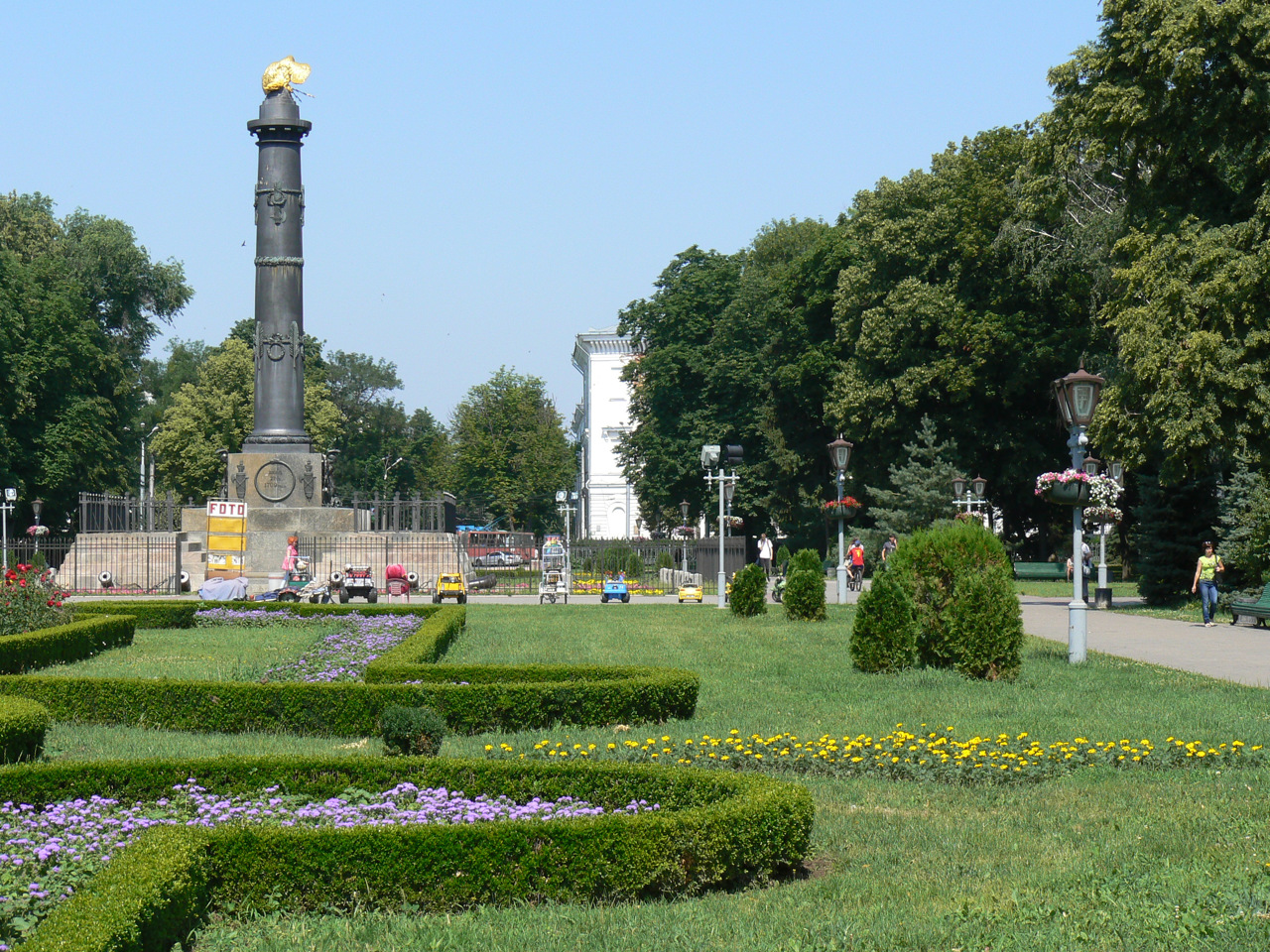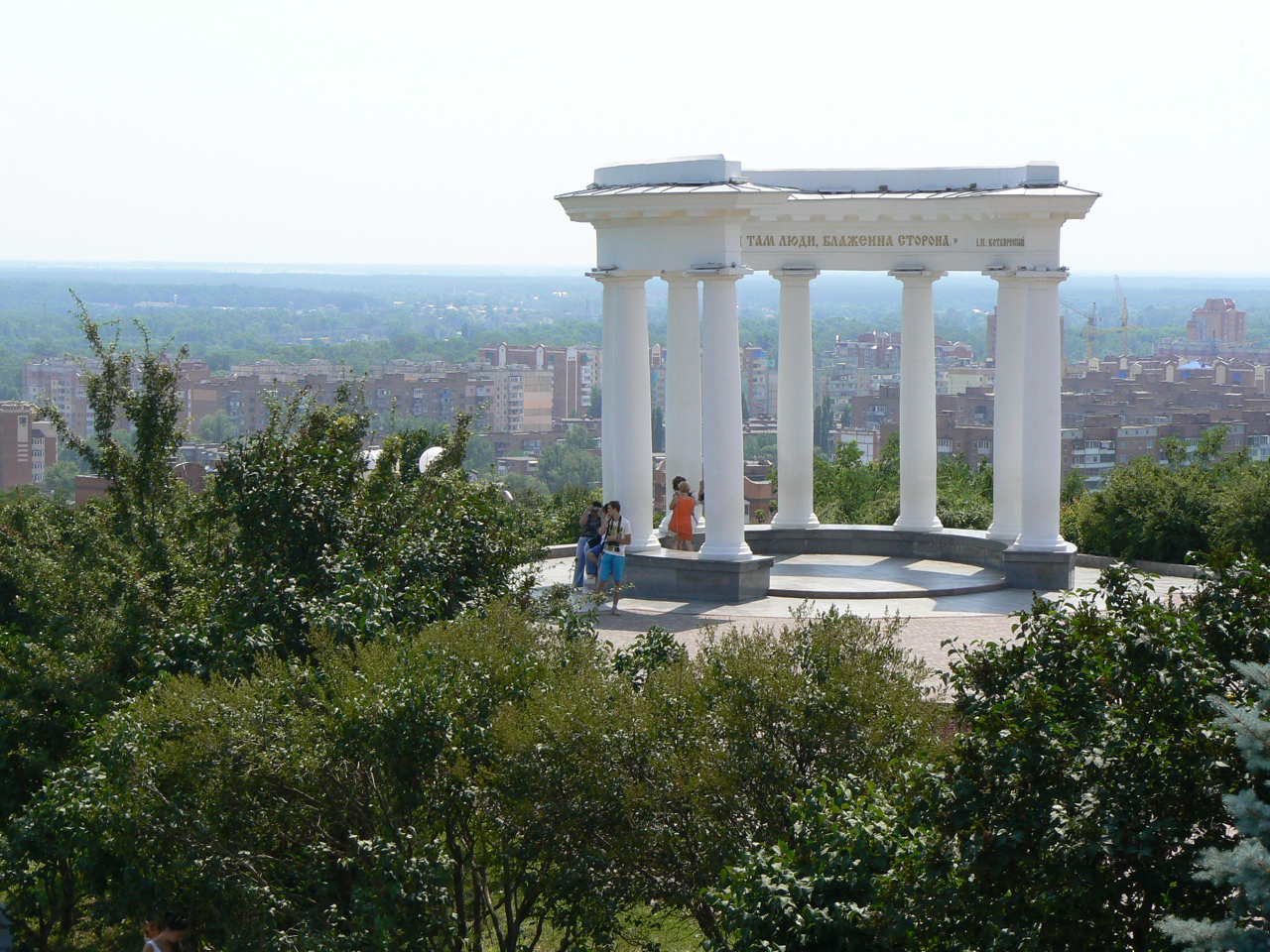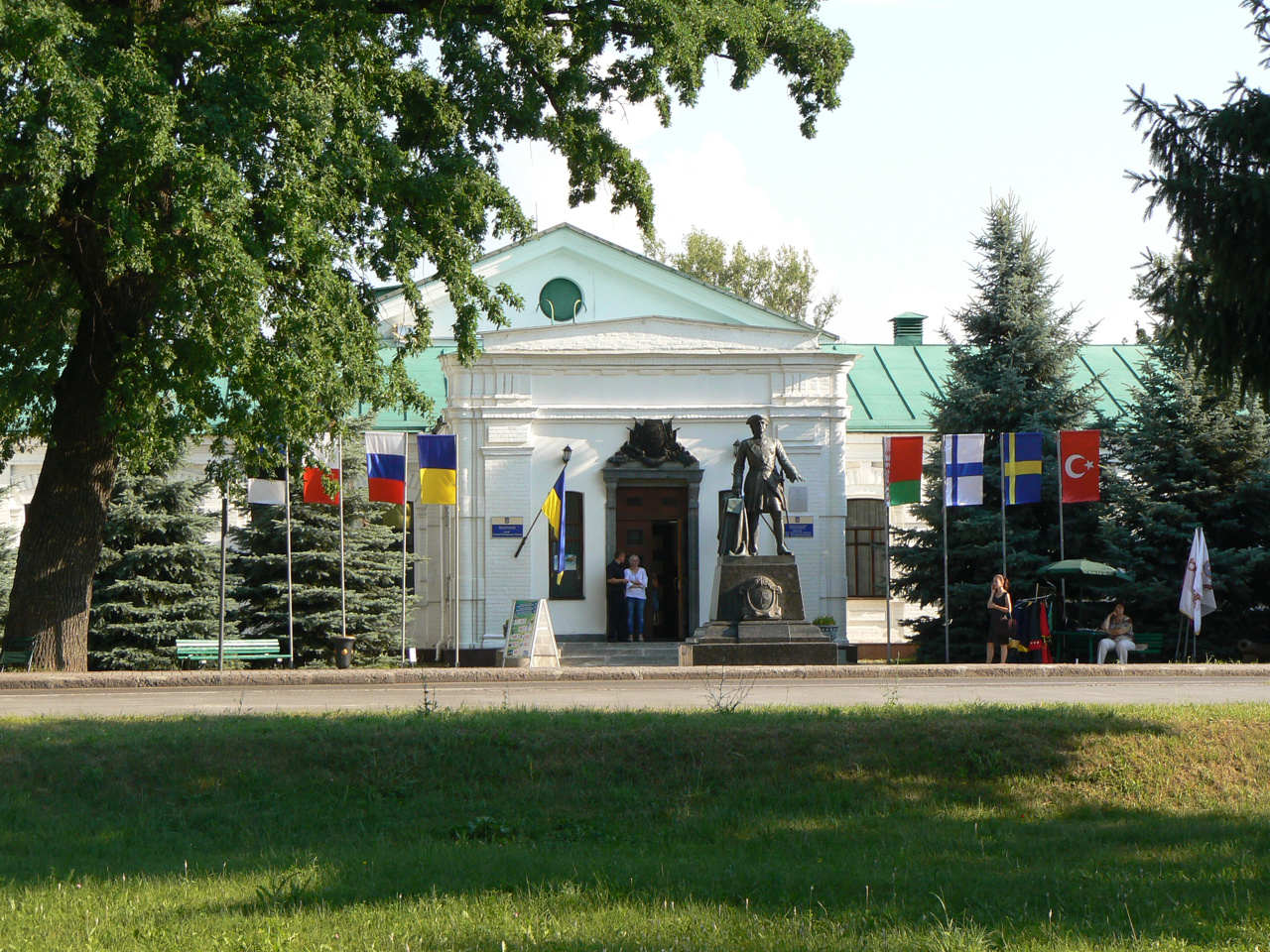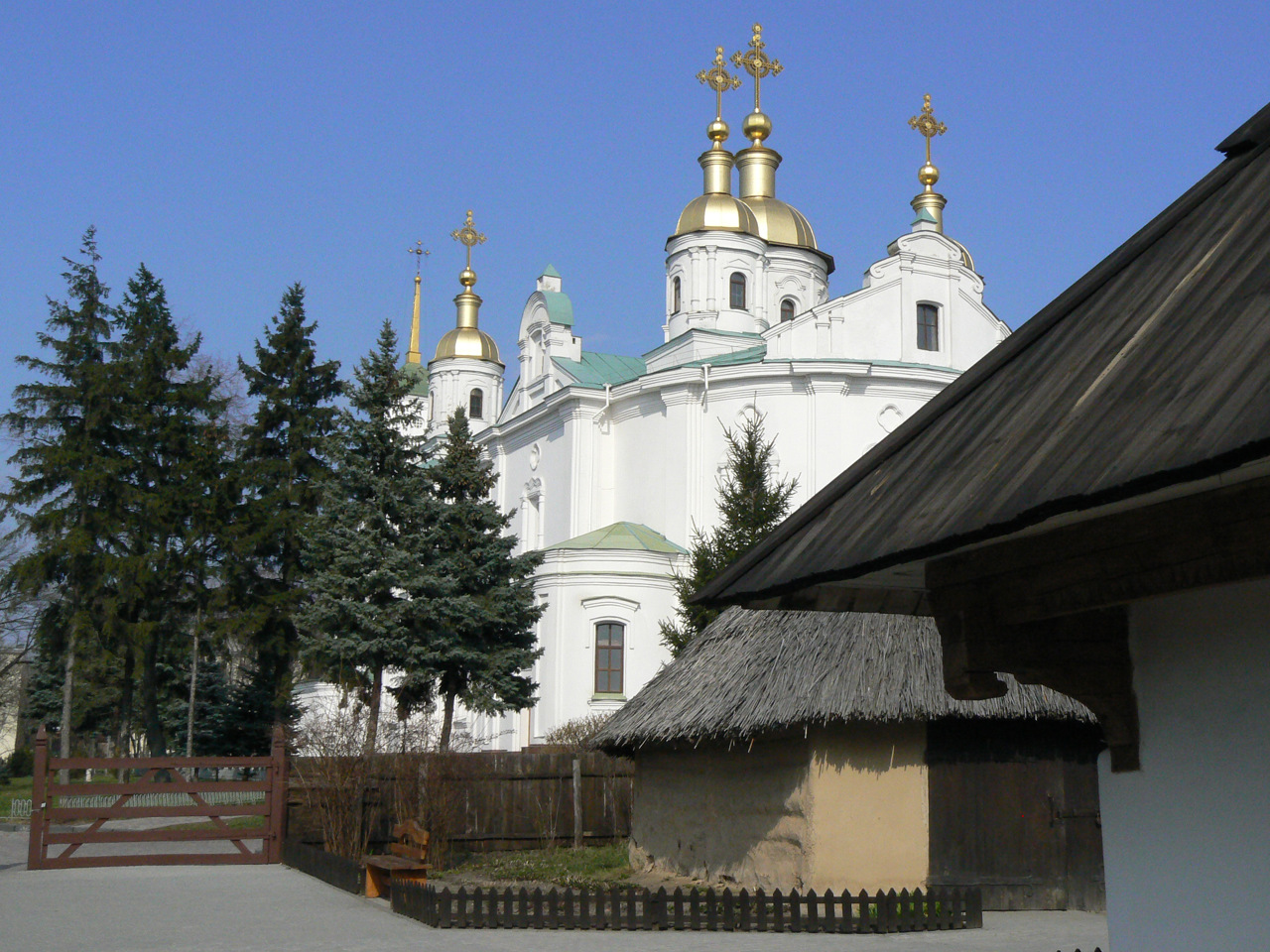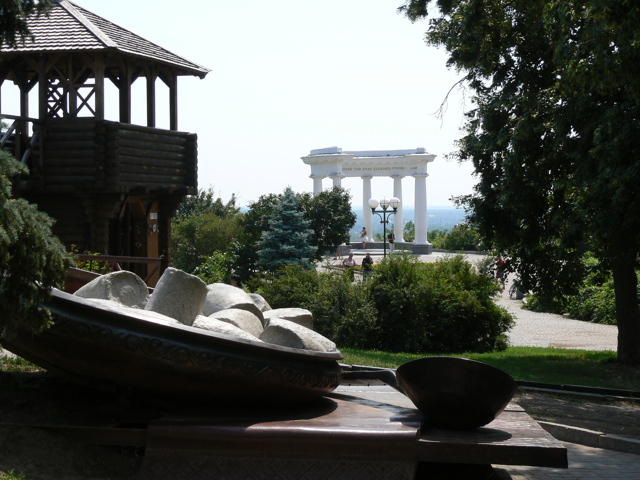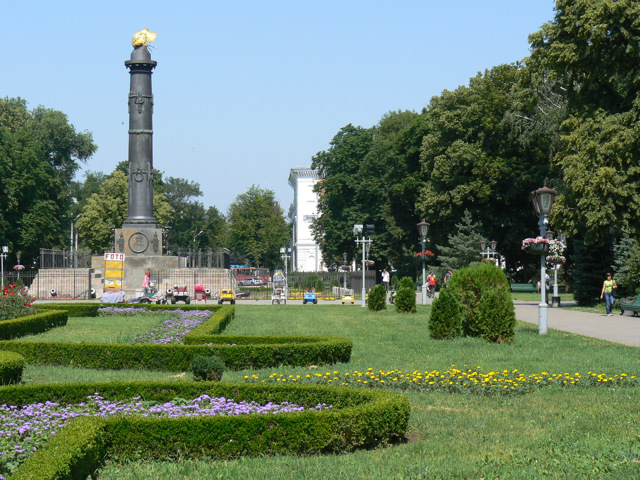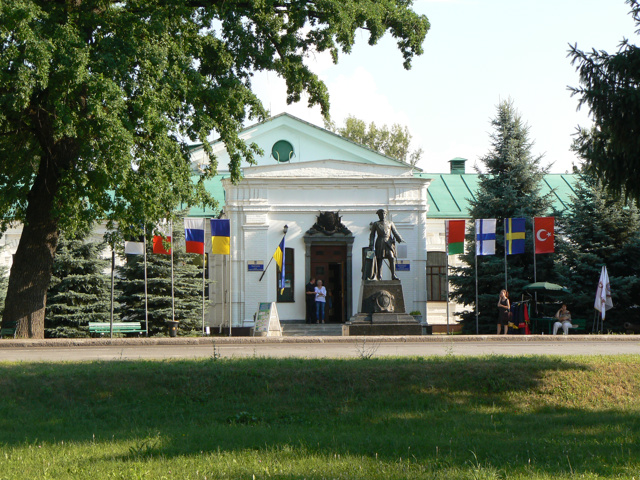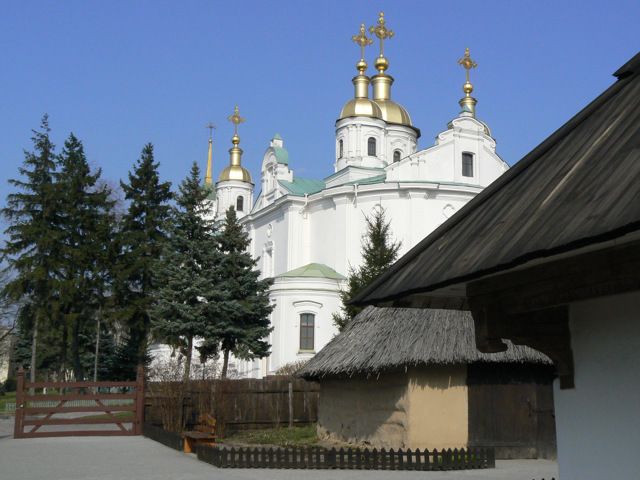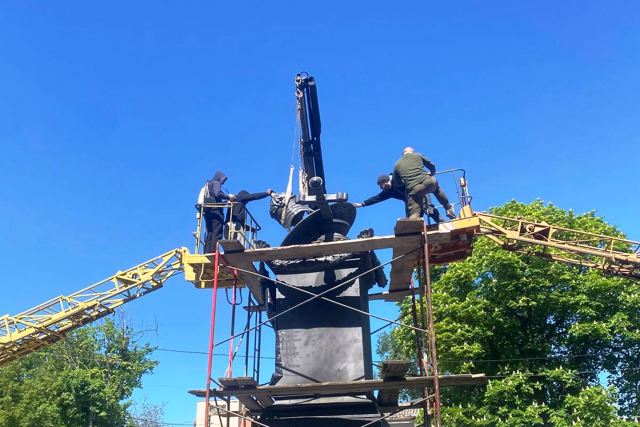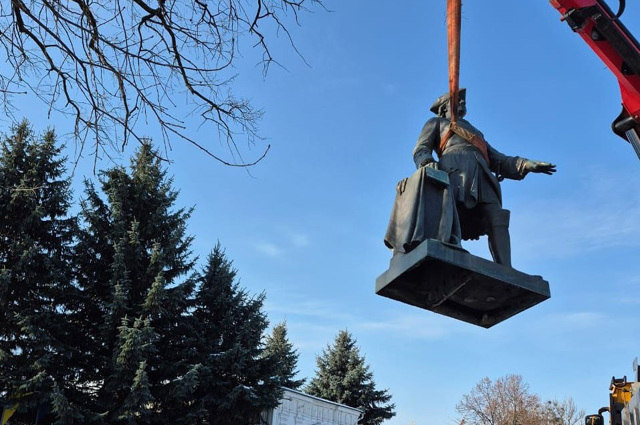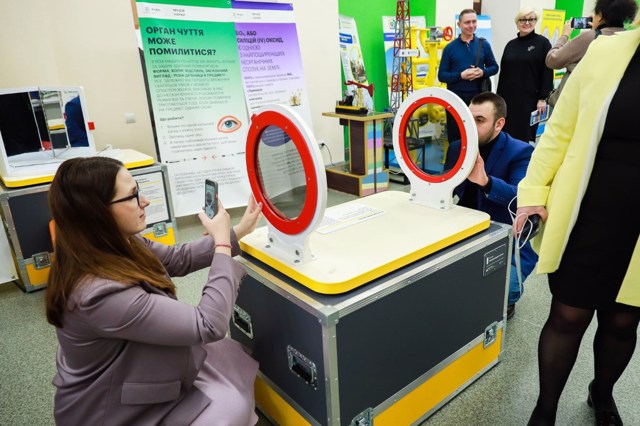Functional temporarily unavailable
General information about Poltava
The ancient city of Poltava is a significant cultural center of Ukraine, a kind of "keeper of the standard" of the entire national Ukrainian culture.
It arose, presumably, in the 9th century. The date of foundation is considered to be 899. It was first mentioned as the settlement of Ltava in the Ipatiev Chronicle in 1174. The Grand Duke of Lithuania Vitovt handed the city over to Prince Hlynskyi, in 1646 Yarema Vishnevetskyi took possession of it. During the Liberation War 1648-1654 the city became the center of the Poltava regiment.
During the Northern War between Russia and Sweden, the Swedish army led by Charles XII approached Poltava. Peter I also arrived here with the main forces of the Russian army. On June 27, a general battle took place - the Battle of Polt ...
The ancient city of Poltava is a significant cultural center of Ukraine, a kind of "keeper of the standard" of the entire national Ukrainian culture.
It arose, presumably, in the 9th century. The date of foundation is considered to be 899. It was first mentioned as the settlement of Ltava in the Ipatiev Chronicle in 1174. The Grand Duke of Lithuania Vitovt handed the city over to Prince Hlynskyi, in 1646 Yarema Vishnevetskyi took possession of it. During the Liberation War 1648-1654 the city became the center of the Poltava regiment.
During the Northern War between Russia and Sweden, the Swedish army led by Charles XII approached Poltava. Peter I also arrived here with the main forces of the Russian army. On June 27, a general battle took place - the Battle of Poltava. The Swedish king and his ally, the Ukrainian hetman Ivan Mazepa, were defeated.
At the beginning of the 19th century. the city was reconstructed in the Russian imperial style, the buildings of the historical center were largely preserved.
The classic of Ukrainian literature Ivan Kotlyarevskyi was born here, Mykola Hohol studied, Taras Shevchenko visited, Panas Myrnyi lived and was buried.
The Poltava dialect is considered the basis of the modern literary Ukrainian language.
Poltava City Day is celebrated on September 23.
Старовинне місто Полтава - значний культурний центр України, своєрідний "зберігач еталону" всієї національної української культури.
Виникло, ймовірно, в IX столітті. Датою заснування вважається 899 рік. Вперше згадується як населений пункт Лтава в Іпатіївському літописі в 1174 році.
В XV столітті великий князь литовський Вітовт передав місто князю Глинському, 1646 році ним заволодів Ярема Вишневецький. В роки Визвольної війни 1648-1654 років місто стало центром Полтавського полку.
У роки Північної війни між Росією і Швецією шведське військо на чолі з Карлом XII підійшло до Полтави. Сюди ж прибув Петро I з основними силами російського війська. 27 червня відбулася генеральний бій - Полтавська битва. Шведський король і його союзник український гетьман Іван Мазеп ...
Старовинне місто Полтава - значний культурний центр України, своєрідний "зберігач еталону" всієї національної української культури.
Виникло, ймовірно, в IX столітті. Датою заснування вважається 899 рік. Вперше згадується як населений пункт Лтава в Іпатіївському літописі в 1174 році.
В XV столітті великий князь литовський Вітовт передав місто князю Глинському, 1646 році ним заволодів Ярема Вишневецький. В роки Визвольної війни 1648-1654 років місто стало центром Полтавського полку.
У роки Північної війни між Росією і Швецією шведське військо на чолі з Карлом XII підійшло до Полтави. Сюди ж прибув Петро I з основними силами російського війська. 27 червня відбулася генеральний бій - Полтавська битва. Шведський король і його союзник український гетьман Іван Мазепа зазнали поразки.
На початок XIX століття припадає реконструкція міста в російській імперському стилі, забудова історичного центру в значній мірі збереглася.
Тут народився класик української літератури Іван Котляревський, навчався Микола Гоголь, бував Тарас Шевченко, жив і був похований Панас Мирний.
Полтавський діалект вважається основою сучасної літературної української мови.
День міста Полтави відзначається 23 вересня.
Сплануй своє перебування у Poltava
What to see and where to go in Poltava
Tourist attractions and museums of Poltava
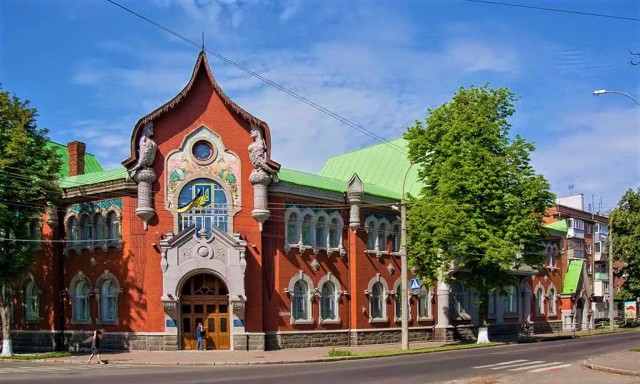
Building of Noble and Peasant Bank
Architecture
The most beautiful building in Poltava, which currently houses the regional office of the SBU, was built at the beginning of the 20th century for the Peasant and Noble Land Bank, which issued long-term loans to peasants for the purchase of noble lands.
Architect Oleksandr Kobelev designed the building, which is now considered one of the best examples of Ukrainian modernism. And the decorations are widely used details of Rus architecture. Multicolored mosaics give a special picturesqueness. The central entrance at the truncated corner of the building is decorated with a decorative mosaic panel with firebirds and siren sculptures.
The Building of Noble and Peasant Bank was damaged during the Second World War, restored in 1948.
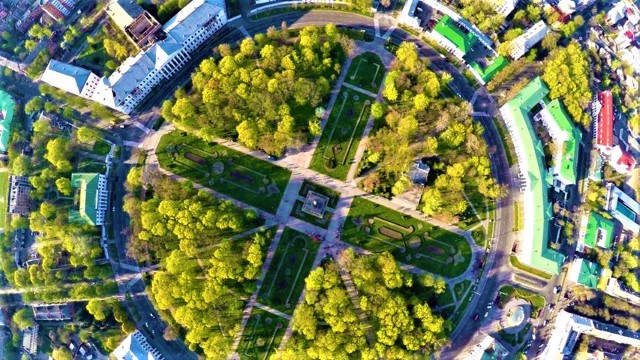
Corps Garden (Round Square)
Historic area , Monument , Park / garden
The central square of the Poltava is a Round, in the center of which is the Corps Garden with the Glory Monument in honor of the 100th anniversary of the victory over the Swedes near Poltava (1806-1811, architect Zhan-Fransua Toma de Tomon, sculptor Feodosiy Shchedrin). According to legend, Petro I met the defenders of the city at this place.
Administrative buildings were built around the square in 1809-1811: The present places (now - the City Council), the Noble Assembly (now - the Ivan Kotlyarevsky cinema), the House of the Governor-General (now - the Council of Trade Unions), the Malorosiyskyi Post Office (now - the Poltava School of Arts) , Petrivsky Cadet Corps (until recently (Higher Anti-Aircraft Missile School) and others. A modern shopping complex was built in the underground part.
The Round Square in Poltava is a popular place for city dwellers to walk.
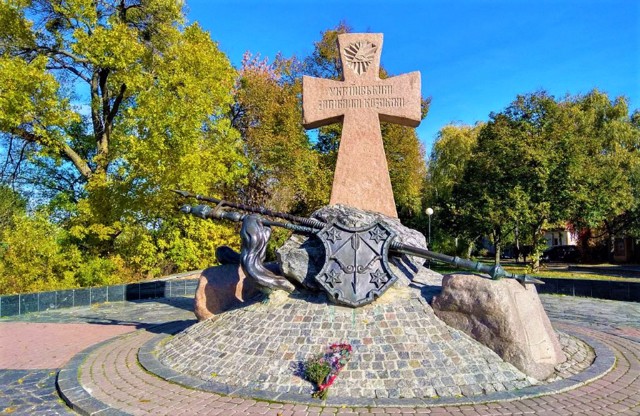
Fallen Ukrainian Cossacks Monument
Monument
The monument of Cossack glory in Poltava was opened in 1994. Dedicated to the Ukrainian Cossacks who died during the Battle of Poltava.
The authors of the project are sculptor Volodymyr Bilous, artist Viktor Baturin.
A huge Cossack cross with the laconic inscription "To Ukrainian fallen Cossacks" is placed on a massive granite base. At the foot of the symbolic mound - two bunchuks.
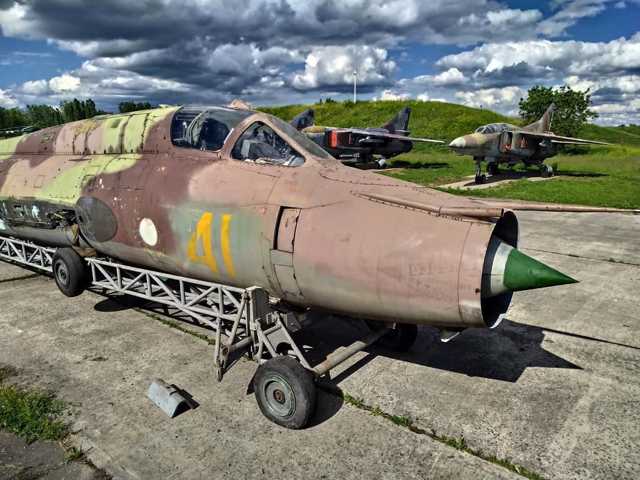
Heavy Bomber Aviation Museum
Museum / gallery
The Museum of Heavy Bomber Aviation was established on the territory of Poltava Military Airfield, where the 13th Guards Dnipropetrovsk-Budapest Order of Suvorov Heavy Bomber Aviation Division was based in Soviet times.
It consisted of 18 long-range supersonic Tu-22M3 bombers (Backfire), 6 long-range jet missiles Tu-16 (Badger) and other equipment. After the collapse of the USSR, the division was disbanded. According to the Ukrainian-American Agreement on the Elimination of Strategic Nuclear Weapons, in February 2006 the last TU-22M3 bomber was cut down at the Poltava military airfield.
2 planes were saved for the museum exposition, some more were brought from other cities. In particular, the exposition of the open parking lot of aircraft presents the world's largest strategic bomber TU-160 "White Swan" (according to NATO classification - "Blackjack"). And also the only Tu-95MS aircraft in Ukraine (according to NATO classification - "Bear"). Other exhibits: Tu-22M3, Tu-22, Tu-16, Tu-134UBL, Su-15, An-2 and helicopters: Mi-8 and Mi-2.
In addition, 13 halls in the exhibition hall tell about the history and global significance of heavy bomber aircraft.
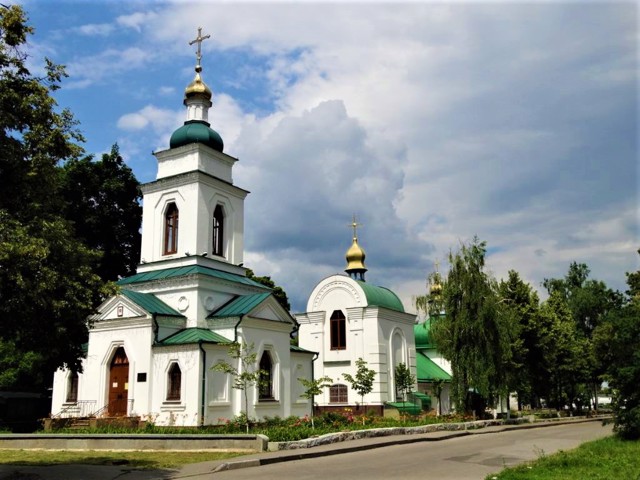
Holy Assumption Cathedral
Temple , Architecture
The Holy Assumption Cathedral on the Ivanova Mountain is the first stone spore in Poltava.
Promoted in 1751-1770 by the initiatives of Colonel Andriy Horlenok at the wooden church, which, since 1695, stood on Vichevy Maidan of Poltava Fortress.
The temple in the style of the Byzantine basilica was designed by the architect Stefan Stabansky. In 1780, two more domes were added to three domes. In 1900, the cathedral underwent one reconstruction, and as a result, it became spacious and bright. On a door with a height of 44 meters, the wall of the door "Kizi-Kermen" is visible from Turkish garmats, for example, of the XVIII century (now at the Local Lore Museum).
In 1934, the Cathedral was demolished by the Bolsheviks, but the door was miraculously preserved. In 1999-2007, at the initiative of the President of Ukraine, the cathedral was reconstructed and turned into the bulk of the Orthodox Church of Ukraine.
Poltava in news and blogs
Reviews Poltava
Geographical information about Poltava
| {{itemKey}} | {{itemValue}} |
|---|---|
| Region |
Poltava |

